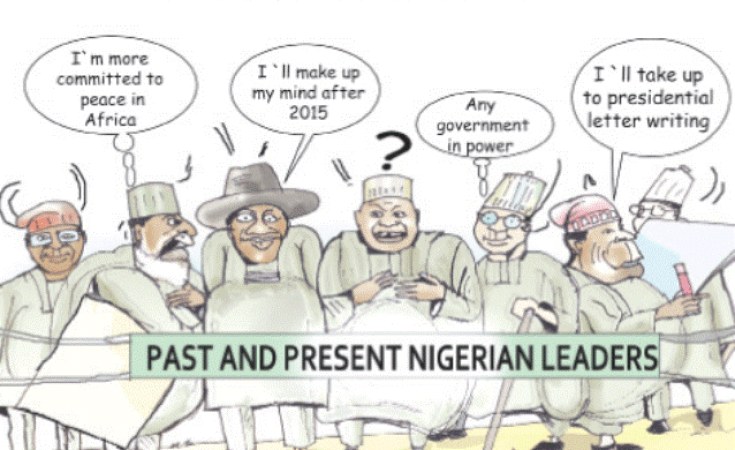In the face of growing challenges to his authority, President Jonathan appears to be increasingly intolerant of "treasonous" criticism.
In the face of ongoing problems in Nigeria and mounting challenges to his authority, one could have expected President Goodluck Jonathan to become more humble and reconciliatory towards his opponents.
The embattled president is struggling to overcome a stubborn Islamist insurgency in the form of Boko Haram, allegations of rampant state corruption, and high unemployment. Meanwhile, under his presidency, the ruling People's Democratic Party (PDP) has lost its overwhelming dominance in Nigeria's political landscape thanks to the bandying together of opposition parties and a split in the PDP itself.
All this could have pushed Jonathan to soften his stances and open up, but in the lead up to the 2015 presidential election, which Jonathan is widely expected to contest, it appears the temptation to silence his critics and tackle Nigeria's challenges by drifting into authoritarianism is proving stronger.
Criticism from the old guard
Last month, Jonathan responded furiously to scathing criticism from former president Olusegun Obasanjo, who had accused him in a leaked letter of promoting political violence and failing to understand how to end the country's four-year old Boko Haram insurgency.
In an unprecedented open letter, published in the Nigerian Tribune and other national media, Jonathan retaliated by accusing Obasanjo of attempting to "incite Nigerians from other geopolitical zones against me and... [promoting] ethnic disharmony." In a sign of the presidency's increasing intolerance for criticism, he also suggested that Obasanjo's complaint "is clearly a threat to national security as it may deliberately or inadvertently set the stage for subversion."
The bitter exchange came after several weeks of other attacks on Jonathan's leadership. On 15 December, Vanguard reported that Nigeria's new main opposition party, the All Progressives Congress (APC), had openly called for his impeachment. A spokesman for the party, Lai Mohammed, accused the president of "a total failure of leadership, even as insecurity, unprecedented corruption, palpable impunity, massive unemployment and hunger stalk the land."
A few days later, Jonathan lost his majority in Nigeria's House of Representatives as 37 members of the PDP defected to the APC. Writing for the Nigerian Tribune, Kolawole Daniel said the defection had put the president's party in a state of crisis. The mass defection came only a few weeks after five state governors also decamped to the opposition.
Fire, brimstone and twitter
Under considerable pressure, the presidency's responses to the mounting crisis have become increasingly irate and draconian. Presidential spokesman Reuben Abati released a statement on 15 December in which he warned critics they should "be ready to pay the price for treason." He also accused the APC of attempting to "seize control of the Federal Government."
In a series of recent tweets that sat somewhere between bizarre and sinister, Abati also reiterated his message that "Those who are threatening fire and brimstone should be ready for consequences of treasonable action," and told some critics to substantiate their accusations or "shut up forever & go down in history as spineless cowards."
The presidency's framing of political criticism and dissent as a security issue might alarm those who remember that Nigeria has been under military rule for most of its post-independence history. The current phase of democracy is unusual and perhaps fragile in a country previously known for authoritarianism.
The Boko Haram insurgency in the north of the country, the focus of much of Obasanjo's criticism of Jonathan, is also not helping to ease Nigeria's authoritarian streak. In some northern states, the government has imposed emergency rule and since May, security forces have conducted mass arrests, imposed curfews, and shut down mobile phone networks. Amnesty International has, meanwhile, accused the government of killing hundreds of people in detention.
These draconian measures have failed to end the insurgency of Boko Haram, which launched a brazen raid on a military barracks in the town of Bama at the end of last month. Agence France-Presse reported that Boko Haram fighters had "torched" the barracks and abducted wives and children of soldiers stationed there. The military eventually repelled the attackers, but not before they had made the point that Boko Haram is alive and well, lending credence to Obasanjo's criticism that Jonathan has been unable to quell the insurgency.
As Nigeria heads into the 2015 election season, the president can expect his political rivals to ramp up the criticism. The way he chooses to respond will have lasting consequences for the country's young democracy.


